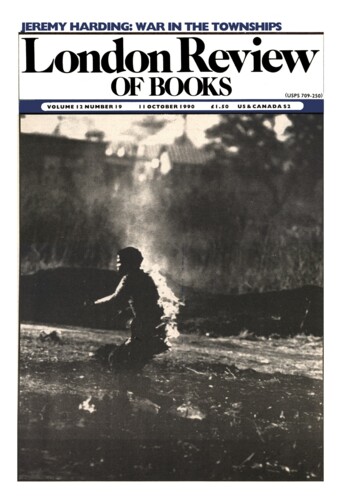Kermode and Theory
Hayden White, 11 October 1990
Frank Kermode belongs to no sect of literary criticism, and he has founded no school. Like William Empson, whom he praises as a ‘genius’ of criticism, Kermode has always been more interested in a poetic than in a theoretic approach to the study of literature. He thinks that literature itself – rather than theories about it – is our best guide to how to read critically, and he has devoted the better part of a long career to this conviction. Kermode is a working critic and proud of it. When he does turn to the sustained consideration of questions of theory and method, it is almost always in the interest of identifying what is useful or illuminating, what can help us to read better, and what impedes us from doing so, in a given critical position or practice, rather than in elaborating a comprehensive theoretical perspective of his own. As for what ‘reading better’ consists in, Kermode would be fully justified in pointing to his own vast production of literary critical essays as a case in point: the bibliography of his works published between 1947 and 1988, appended to Poetry, Narrative, History, lists 308 items. Over a long career, Kermode has been a consistently patient, generous, informed, and above all intelligent reader of literature. We can say of him what he says of Empson: ‘He never loses class’.’

